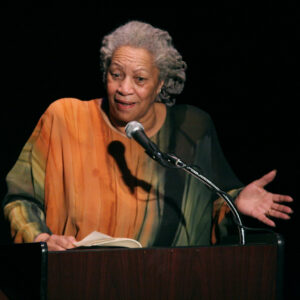
Citizenship By Javier Zamora
Part Three of the American Academy of Poets Weeklong Poetry & the Body Series
This is the third poem in a weeklong series from the American Academy of Poets called Poetry & the Body.
![]()
it was clear they were hungry
with their carts empty the clothes inside their empty hands
they were hungry because their hands
were empty their hands in trashcans
the trashcans on the street
the asphalt street on the red dirt the dirt taxpayers pay for
up to that invisible line visible thick white paint
visible booths visible with the fence starting from the booths
booth road booth road booth road office building then the fence
fence fence fence
it started from a corner with an iron pole
always an iron pole at the beginning
those men those women could walk between booths
say hi to white or brown officers no problem
the problem I think were carts belts jackets
we didn’t have any
or maybe not the problem
our skin sunburned all of us spoke Spanish
we didn’t know how they had ended up that way
on that side
we didn’t know how we had ended up here
we didn’t know but we understood why they walk
the opposite direction to buy food on this side
this side we all know is hunger
![]() About This Poem
About This Poem
In this poem, I tried to convey a personal image that I’ve yet to fully understand: watching homeless US citizens cross into Mexico to buy cheaper food. The setting is the Nogales, Arizona, port of entry. The year is 1999. The speaker is a nine-year-old looking over to the United States from the Mexican side of the “line.” I hope to convey the limits of the nation-state, how the idea of citizenship is as blurred as the physical border itself.
Javier Zamora
Javier Zamora was born in El Salvador in 1990. His father fled the country when he was one, and his mother when he was about to turn five. Both parents’ migrations were caused by the U.S.-funded Salvadoran Civil War. When he was nine Javier migrated through Guatemala, Mexico, and the Sonoran Desert. His debut poetry collection, Unaccompanied, explores the impact of the war and immigration on his family. Zamora has been a Stegner Fellow at Stanford and a Radcliffe Fellow at Harvard and holds fellowships from the National Endowment for the Arts and the Poetry Foundation. His memoir Solito is out now from Hogarth.



















